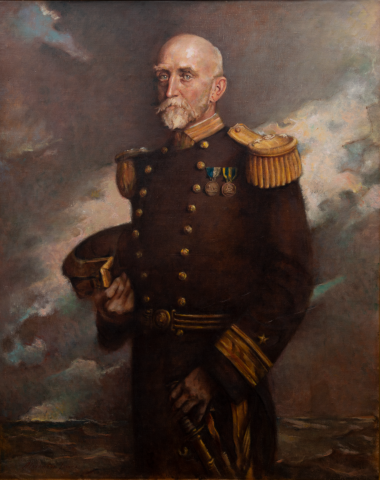
Alfred Thayer Mahan (1840–1914)
In the 1880s, the naval officer Alfred Thayer Mahan spearheaded his concept of sea power, or the ability to control the ocean for economic and military gain. He popularized this idea and proposed revitalizing the U.S. Navy in his important 1890 treatise, The Influence of Sea Power upon History, 1660–1783.
Mahan argued that surplus U.S. production would require overseas markets but that the benefits would be significant for a country “seeking a new outlet for what it had to sell,” and would achieve “more employment for its people, more comfort and wealth for itself.” For economic and territorial expansion, however, a modern navy was crucial. This could only be achieved by creating a steam and steel navy that operated in large, fleet-sized units. This way, the U.S. Navy would be capable of acting on the offensive—key for seizing overseas territories and creating colonies. Ultimately, Mahan’s theory of sea power provided an intellectual justification for a war that extended from the Caribbean to the Pacific.